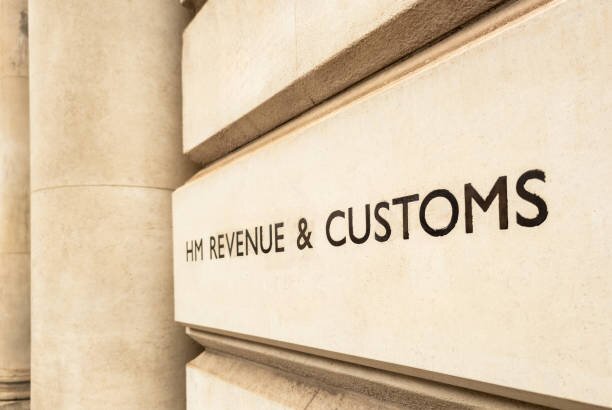Rising State Pension Payments Trigger Tax Thresholds
The state pension has experienced significant increases in recent years due to the triple lock mechanism, which guarantees annual rises based on the highest of inflation, average earnings growth, or 2.5 percent. For the current tax year 2024/2025, the full new state pension stands at £221.20 per week, equating to approximately £11,502 annually. While this amount remains technically below the personal allowance threshold of £12,570, many pensioners receive additional income from small occupational pensions, savings interest, or part-time work that pushes them into taxable territory.
The situation becomes more acute when considering future projections. With the triple lock remaining in place and the personal allowance frozen until at least April 2028, experts predict that the state pension alone could breach the tax-free threshold within the next few years. This would mark an unprecedented situation where pensioners receiving only the state pension would automatically become liable for income tax, something that has historically been uncommon in the UK tax system.
Understanding the Personal Allowance Freeze
The personal allowance freeze was initially announced by former Chancellor Rishi Sunak in March 2021 as part of broader fiscal consolidation measures following pandemic-related spending. The allowance has remained at £12,570 since April 2021 and is legislated to stay at this level until April 2028.
This seven-year freeze represents one of the longest periods without adjustment for inflation in modern British fiscal history. Fiscal drag, the mechanism by which frozen tax thresholds pull more people into tax brackets as incomes rise with inflation, has become a significant revenue generator for the Treasury. Analysis from independent fiscal experts suggests that millions of additional taxpayers have been created through this policy, with pensioners representing a substantial and growing proportion.
The Institute for Fiscal Studies has noted that fiscal drag generates billions in additional tax revenue annually without requiring explicit tax rate increases, making it a politically attractive but financially burdensome policy for those affected.
Which Pensioners Are Most Affected
Pensioners receiving the full new state pension alongside even modest additional income sources are most vulnerable to unexpected tax bills. Those with small occupational pensions worth just a few thousand pounds annually, previously considered inconsequential for tax purposes, now find these amounts pushing their total income above the personal allowance.
Similarly, pensioners with savings generating interest income have been particularly affected as interest rates have risen substantially over recent years. The older basic state pension, received by those who reached state pension age before April 2016, currently pays £169.50 per week or approximately £8,814 annually.
While this provides more headroom below the personal allowance, many recipients of the basic state pension also receive additional state pension (SERPS or State Second Pension) or graduated retirement benefit, which combined can easily exceed the tax-free threshold. Financial advisers report increasing numbers of clients in their seventies and eighties receiving their first ever tax demands, causing confusion and financial stress among those on tight retirement budgets.
Government Policy and Fiscal Drag Explained
The current government has maintained the fiscal policies established by previous administrations, including the personal allowance freeze.
Chancellor Rachel Reeves has defended the policy as necessary for maintaining fiscal discipline while ensuring adequate funding for public services. The Treasury argues that the triple lock protection for state pensions represents a significant commitment to pensioner incomes, with increases substantially outpacing inflation over the long term. However, critics contend that the combination of rising pensions and frozen allowances creates a hidden tax increase that disproportionately affects those on modest fixed incomes.
Former Pensions Minister Steve Webb has described the situation as creating a new generation of pensioner taxpayers who may struggle with the administrative burden of tax returns and unexpected bills. The Office for Budget Responsibility estimates that fiscal drag across all taxpayers will raise tens of billions in additional revenue by 2028, with pensioners contributing a growing share.
Expert Analysis on Pension Tax Implications
Financial planning professionals have expressed concern about the lack of awareness among pensioners regarding their potential tax liabilities. Many retirees assume that if they paid tax through PAYE during their working lives, their pensions would be managed similarly, but state pension payments are made gross without tax deduction.
HMRC typically collects tax owed by adjusting tax codes on other pension income or issuing direct payment demands. Tom Selby, director of public policy at a leading investment platform, has noted that the complexity of the system catches many pensioners unprepared. He emphasizes that anyone approaching retirement should carefully calculate their expected total income from all sources and understand potential tax obligations.
The situation is further complicated for those with multiple small pension pots, each appearing insignificant individually but collectively creating tax liability when combined with state pension income.
What Pensioners Can Do to Prepare
Pensioners facing unexpected tax bills have several options for managing their obligations. HMRC allows tax to be collected through adjustments to tax codes on private pension income, spreading the liability across the year rather than requiring lump sum payments.
Those receiving only state pension income may need to complete self-assessment tax returns and make direct payments, though HMRC has indicated willingness to establish payment plans for those experiencing difficulty. Proactive tax planning can help minimize surprises. Pensioners should review all income sources annually, including state pension, private pensions, employment income, and investment returns. Making use of available allowances, such as the personal savings allowance and dividend allowance, can reduce tax exposure.
Some may benefit from pension flexibility options, adjusting how they draw income from defined contribution pensions to manage tax efficiency across years. Seeking advice from qualified financial advisers or utilizing free guidance services can help pensioners navigate these complexities.
Frozen personal allowances and rising state pensions are pushing millions of UK pensioners into paying income tax for the first time. With thresholds frozen until 2028 and the triple lock continuing to lift pension payments, many retirees on modest incomes are being drawn into the tax system, facing unexpected bills and added administrative burdens.
Financial experts advise pensioners to review their total retirement income and plan for potential tax liabilities. Tools like Pie tax can help manage and understand these obligations, ensuring retirees stay prepared as the UK’s fiscal landscape continues to evolve.











